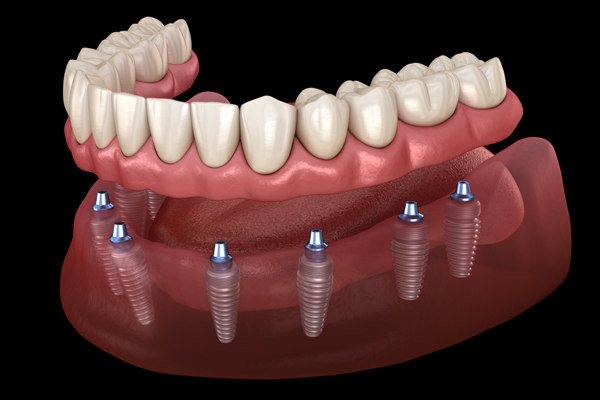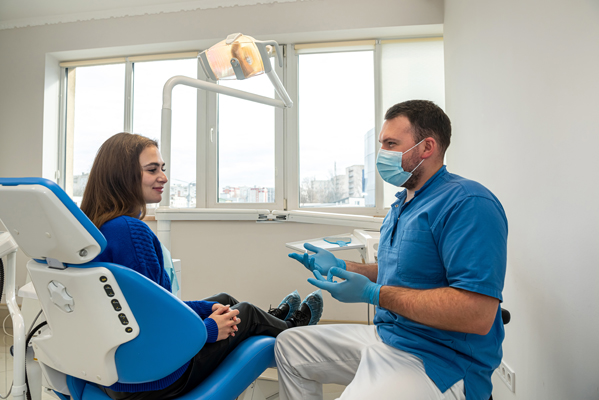Is It Common to Have an Oral Cancer Screening?

Understanding the importance of an oral cancer screening is necessary, especially for dental patients who smoke, drink alcohol, or spend a lot of time in the sun without using some protection. According to the Mayo Clinic, oral cancer screening aims to identify mouth cancer early, when there is a greater chance for a cure.
What happens during a cancer screening
Learning what happens during an oral cancer screening is helpful, as when dental patients know what to expect during this type of screening, they will feel more comfortable while the screening is being performed. A dentist will first look inside of the patient's mouth to check for any abnormalities, including lingering mouth sores or red and white patches. The dentist will then feel the inside of the mouth to find out if there are any lumps or any other suspicious areas in the mouth. Examining the lips, throat, and neck is the last part of an oral cancer screening.
It is customary for dental patients to have oral cancer screenings
Oral cancer screenings are performed on dental patients every time they undergo an examination. This type of screening is fairly common, as it is easier to treat when oral cancer is found in its earliest stages. In addition, dentists tend to ask the patient questions during the screening, which allows them to better understand their health habits, making it essential for patients to be completely honest as this information helps the dentist know what to look for.
Some patients who are considered to be at high risk will need to undergo additional screenings. One example is using a screening dye, which shows abnormal cells in the mouth by making them appear blue. Another example is using a screening light, which makes any abnormal tissues appear white.
The stages of oral cancer
There are four stages of oral cancer. Depending on the stage someone is in will determine the type of treatment they will need to undergo.
The first stage means the cancer is 2 centimeters or smaller and that it has not spread to the patient's lymph nodes. The second stage means the cancer is between 2 and 4 centimeters and has not yet spread to the lymph nodes. The third stage means the cancer is now bigger than 4 centimeters and still has not spread to the lymph nodes. The fourth and final stage of oral cancer means the cancer can be any size and it has spread to the lymph nodes or anywhere else in the body.
Oral cancer screenings
Now that the above oral cancer screening information is understood, it is important to maintain regular oral cancer screenings. The entire screening process does not take long to perform and does not cause any discomfort or pain. For those overdue for an oral cancer screening, make an appointment with a general dentist. The sooner cancer is found, the better the chances of successful treatment are.
Request an appointment here: https://sexton-dental.com or call Sexton Dental at (740) 363-2080 for an appointment in our Delaware office.
Check out what others are saying about our dental services on Yelp: Oral Cancer Screening in Delaware, OH.
Recent Posts
Since some of the warning signs associated with oral cancer can be confused with other less serious dental problems, it is important for patients to learn more about the warning signs of oral cancer. Understanding the signs can help you determine whether or not the symptoms you are currently experiencing are indeed cancer-related. You can…
Asking a dentist about exams that help detect oral cancer is something every dental patient should do, as the more knowledge one has, the more likely they will be to make regular appointments to undergo an oral cancer examination. Dental patients are encouraged to ask a dentist any question they have, as this is ideal…
An oral cancer screening is often part of a routine dental examination. The frequency with which a patient should receive screenings depends on a number of considerations. These include a patient's age and the presence of any risk factors. The American Cancer Society recommends that patients over the age of 40 get a screening once…
Oral cancer is a serious disease that more commonly affects older patients. Still, younger adults — even those in the 20s — can have the condition. There are some risk factors that could make you more prone to the disease, so it is important to be aware of what can cause oral cancer.Cancer of the…


